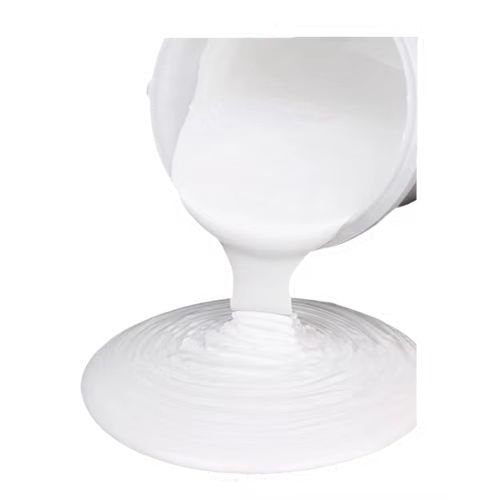Innovative Aerogel Pipe Insulation Boosting Efficiency in Energy Industries
Critical industrial processes are plagued by energy loss from inadequate thermal management.
Critical industrial processes are plagued by energy loss from inadequate thermal management. Pipelines in petrochemical plants struggle to maintain consistent temperatures, driving up operational costs. In the new energy sector, unstable thermal conditions can compromise the safety and efficiency of lithium-ion battery systems. These persistent issues highlight a clear need for a more effective insulation solution. Advanced materials from leading aerogel manufacturers, such as InsulateWool's Aerogel block - Thermal Insulation Sheet, offer a direct response to these challenges by providing superior thermal performance.
Table of contents:
Thermal insulation challenges in lithium-ion battery systems and hydrogen storage tanks
Aerogel sheet properties that contribute to reduced heat transfer and energy loss
Market demand trends driving adoption of advanced aerogel pipe insulation materials
Thermal insulation challenges in lithium-ion battery systems and hydrogen storage tanks
Maintaining thermal stability is non-negotiable in modern energy storage. For lithium-ion battery systems, temperature fluctuations can lead to decreased performance, shortened lifespan, and even dangerous thermal runaway events. Likewise, cryogenic hydrogen storage tanks require exceptionally effective insulation to prevent boil-off, where the liquid hydrogen vaporizes due to heat ingress, resulting in product loss and operational inefficiency. Traditional insulation materials often fall short, as they can be bulky, susceptible to moisture, and less effective at managing extreme temperature differentials. This performance gap has pushed engineers and system designers to seek out advanced solutions. When searching for aerogel for sale, they are specifically looking for materials that provide a slim profile without compromising thermal resistance. Aerogel blocks, with their robust structure and superior insulating capabilities, directly address these high-stakes requirements. They create a stable thermal environment that protects sensitive components, ensures safety, and maximizes the operational efficiency of both battery and hydrogen systems, making them an indispensable material in the clean energy transition.
Aerogel sheet properties that contribute to reduced heat transfer and energy loss
The remarkable effectiveness of aerogel insulation stems from its unique internal structure. InsulateWool's Aerogel block - Thermal Insulation Sheet leverages revolutionary nanotechnology to create a material with an ultra-low thermal conductivity of just 0.015 W/(m·K). This property is a direct result of its nanoporous composition, which severely restricts the three modes of heat transfer: conduction, convection, and radiation. Unlike conventional materials like fiberglass or mineral wool, which rely on trapping air, aerogel’s structure minimizes solid-state conduction and virtually eliminates gas-phase convection. This means less energy is lost through pipelines, reactors, and storage tanks. Furthermore, these sheets are incredibly lightweight and easy to handle, which significantly reduces installation complexity and labor costs. Their durability, including resistance to moisture, chemicals, and high temperatures, ensures a long service life with minimal maintenance. These combined properties are why discerning project managers work with trusted aerogel manufacturers to secure materials that deliver consistent, long-term performance and a measurable return on investment through sustained energy savings.
Market demand trends driving adoption of advanced aerogel pipe insulation materials
Across the global energy sector, a powerful shift towards greater efficiency and sustainability is accelerating the adoption of advanced materials. Industries from petrochemical and power generation to new energy are under increasing pressure to reduce their carbon footprint and lower operational expenditures. This has created a surge in demand for high-performance insulation that goes beyond the capabilities of traditional products. As a result, the market for aerogel for sale is expanding rapidly. Facility managers and engineers are proactively replacing outdated insulation with solutions like aerogel blocks to improve the efficiency of boilers, turbines, and extensive pipeline networks. This trend is not just about meeting regulatory requirements; it is a strategic business decision to enhance operational resilience and reduce long-term energy costs. In response, leading aerogel manufacturers are continually innovating, expanding their product lines to include ultra-thin aerogel blankets, specialized coatings, and versatile aerogel powders to meet diverse industrial needs. This commitment to research and development ensures that aerogel technology remains at the forefront of industrial energy conservation efforts.
If your industrial operations require precise temperature stability and a significant reduction in energy waste, then leveraging an advanced insulation material is a clear path toward greater efficiency. The exceptional performance of aerogel, defined by its ultra-low thermal conductivity of 0.015 W/(m·K), ensures dependable and consistent thermal management for critical assets. For those seeking reliable solutions, exploring the available aerogel for sale from established suppliers can provide access to materials engineered for durability and long-term value in the most demanding environments.

Written by - Zhongjian An
Certified Passive House Designer (PHI Germany), validated by Prof. Dr. Wolfgang Feist. With 15+ years of expertise in high-performance solutions for both Green Buildings and Industrial Applications (Petrochemical Pipelines, LNG Cryogenic, & High-Temp Equipment).
LATEST NEWS
Don't Be Fooled by Reflective Paints: Why Your Industrial Roof Gets Hot Again in Year Two
2026-02-19
Stop the Bulk: How to Choose the Right "Core" for Removable Insulation Jackets? (Aerogel vs. Rockwool Real-World Comparison)
2026-02-16
The "Great Squeeze" of 2026: Why Your 90-Day Terms Are Putting 25-Year Assets at Risk
2026-02-14
Closing the 0.005 W/mK Gap: How EV Battery Tech Solved a Passive House Thermal Bridge Nightmare
2026-02-12
The 98% UK Retrofit Failure: The Vapor-Open Aerogel Fix (μ<5)
2026-02-09

